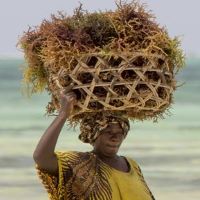

AquaInvest Platform
Authors
Tags
- AgTech (1)
- Seaweed farming (17)
- Gender (3)
- Research (1)
- Biodiversity (1)
- Guidelines (1)
- Seaweed (24)
- Fishery (8)
- Environment, Disaster Risk, and Climate Change (1)
- China (1)
- Region - East Asia and Pacific (2)
- Agriculture (17)
- Agriculture Data Platform (1)
- Korea (4)
- Ecosystem Services (3)
- Policy and Regulations (1)
- Climate Change Adaptation (4)
- Climate Resilience (5)
- Food Safety (3)
- Africa (2)
- Mariculture (21)
- Food Security (8)
- Policy - Food Security (1)
- Gender Equality (2)
- Blue Economy (31)
- Agribusiness (12)
- Climate Change (5)
- AFR Region (1)
- Environment (13)
- Policies and Legislation (2)
- Aquaculture (40)
- Indonesia (1)
- Nutrition & Diets (1)
- women (1)
Blog » Problue Key Resources
Problue Key Resources
PROBLUE is an umbrella multi-donor trust fund administered by the Work Bank that supports the sustainable and integrated development of marine and coastal resources in a healthy ocean. Read responses to Frequently Asked Questions and browse key PROBLUE-funded resources.
The Global Seaweed New and Emerging Markets Report 2023 has identified ten global seaweed markets with the potential to grow by an additional USD 11.8 billion by 2030. Yet, much of the seaweed sector’s value remains untapped - it has clear growth potential beyond its current markets.
The new Global Aquabusiness Investment Guide is now live online. It offers a framework for public and private sector-led initiatives seeking to invest in the aquaculture sector. Produced by the AquaInvest Platform, a project led by the World Bank with financing from the multi-donor trust fund PROBLUE, it details principles for sustainable aquaculture and aquabusiness development aligned with the 17 U.N. Sustainable Development Goals and the Paris Agreement. With farmed rather than captured seafood as the primary source for human consumption, the aquaculture sector demonstrates a persistent and powerful growth trend.
The AquaInvest Platform: The AquaInvest Platform is a multi-team project led by the World Bank, with financing from the multi-donor trust fund PROBLUE, which promotes sustainable fisheries and aquaculture.
PROBLUE 2023 Annual Report: Conserving and regenerating our ocean—a precious global resource for all—is fundamental to delivering on the promise of development, tackling climate change, and restoring and conserving nature. PROBLUE supports work in every World Bank region, including cross-sectoral initiatives and global activities. As of June 30, 2023, PROBLUE has increased its overall portfolio of technical activities to $144 million in support of 181 activities in 80 economies.
AquaInvest Platform: A Knowledge & Learning Platform: The platform serves as a space for practitioners, policymakers, innovators, researchers, and experts to share knowledge, tools, and best aquaculture practices and provides periodic updates and information on current developments in aquaculture.
AquaInvest Platform Learning Series: This series promotes adopting good practices throughout the aquaculture value chain, encouraging improved sustainability, profitability, marketability, and private-sector investment. Regular updates provide insights into the latest knowledge on aqua-business and related tools and best aquaculture practices used by actively engaged practitioners, policymakers, innovators, researchers, and experts.
Unlocking the Potential of Seaweed to Bolster Local Economies, a World Bank Knowledge Exchange. Join our virtual e-learning series (self-paced and live) to learn about the burgeoning global seaweed sector. In four live sessions, we explore innovative practices and emerging markets across sectors, showing how the public, private, and research sectors contribute to thriving value chains.
Pathways out of Plastic Pollution: Pathways out of Plastic Pollution provides key recommendations for creating a comprehensive approach to tackling plastic pollution.
Blue Economy for Resilient Africa Program (BE4RAP): The program works with Africa’s coastal countries to leverage the opportunities—and manage the risks—inherent in growing their budding Blue Economies.
Gender, Marginalized People, and Marine Spatial Planning: These initiatives will improve livelihoods, empower marginalized groups, and bridge the inequality gap.
An ocean of opportunities: The potential of seaweed to advance food, environmental, and gender dimensions of the SDGs: This study aims to contribute to a greater understanding of the seaweed sector as a driver of food security and women’s empowerment while addressing the interlinkages between food security, environmental sustainability, and trade. The study analyzes the seaweed sector and explores its linkages with food and nutrition security and environmental sustainability. It collates the most recent available data and evidence on seaweed production and trade, with a focus on developing countries.
Gender Integration in the Blue Economy Portfolio: Women play a significant role in the Blue Economy sectors, such as fisheries, aquaculture, processing and trading of marine products, waste management, coastal tourism, conservation activities, and coastal disaster-risk reduction. This analytical study is based on a robust exploratory and qualitative approach highlighting trends and best practices.
The Potential of the Blue Economy: Increasing Long-term Benefits of the Sustainable Use of Marine Resources for Small Island Developing States and Coastal Least Developed Countries: United Nations entities, the World Bank, and other stakeholders to suggest a common understanding of the blue economy; to highlight the importance of such an approach, particularly for small island developing states and coastal least developed countries; to identify some of the critical challenges its adoption poses; and to suggest some broad next steps that are called for to ensure its implementation.